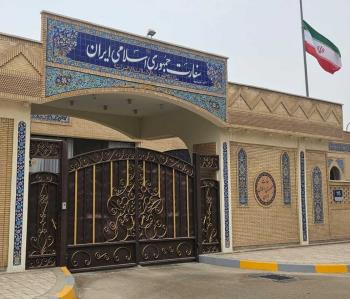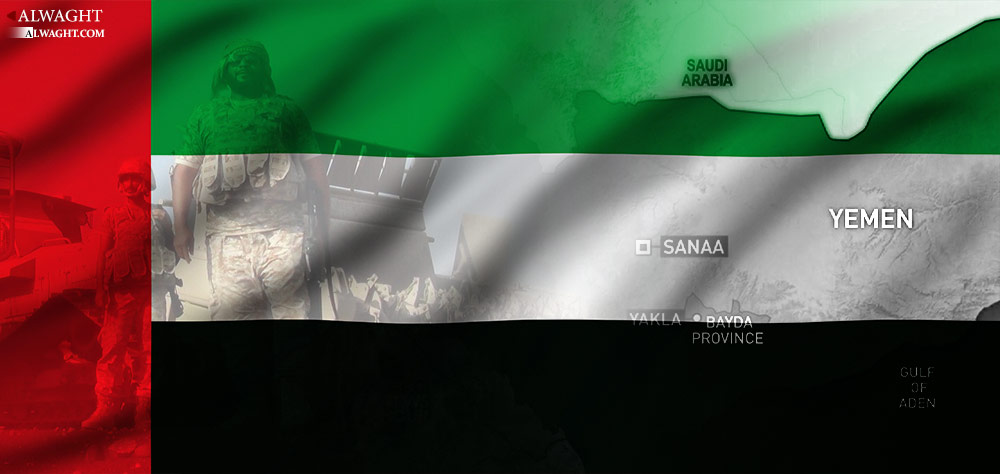Alwaght- The divisions inside the anti-Yemeni Arab coalition have been increasingly widening for some time. As the time passed by and the victory became increasingly wrapped in uncertainty and Saudi Arabia went more and more confused about how to continue the war, the United Arab Emirates (UAE), a key party to the military alliance, decided that it needs to independently bring southern Yemen under its control to meet its set aims.
As the first step to their end, the Emirati leaders took measures to oust the already-resigned Yemeni President Abd Rabbuh Mansour Hadi, who is largely a Saudi Arabia’s protégé. Abu Dhabi considers Hadi a hurdle ahead of any peace because he benefited from the war, knowing that any settlement will mean his removal from his post, which is domestically unrecognized. As the UAE efforts went on, Aidarus al-Zoubaidi, the former governor of Aden, allied with Abu Dhabi in the south and his force who were trained and armed by Emiratis along with police and other local militias were present in most southern provinces. The UAE-backed militants forced the fighters of Al-Qaeda terrorist group out of Mukalla, a city in southeastern Yemen which was rapidly seized by the terrorists following the aggression of the Saudi-led Arab camp against the country. But why is the UAE seeking toehold in the south?
Yemen can serve Abu Dhabi’s power gain ambitions
The UAE leaders have some doubts about the US full commitment to its promises of supporting the rule of the Persian Gulf Arab sheikhdoms. This mistrust very well motivates the Emiratis to cultivate a domineering spirit in a bid to secure vital spaces. South of Yemen is a region that can offer the UAE maneuvering power for the time of need.
Abu Dhabi has serious fears of the expansion of Muslim Brotherhood (MB) and Wahhabism into the region as well as democratic changes in the region. These two points of concern have fuelled an aggressive security-seeking approach among Emeriti leaders towards Yemen. The UAE ambitions to get economic and political toeholds in the region and global stage also provide another driving force for the UAE's presence in Yemen.
The UAE is discontented to see Saudi Arabia is sharing the Sunni Arab world leadership with Turkey. Abu Dhabi thinks that it is more qualified to get the position than Turkey. This political competition also has ideological aspects as the UAE is traditionally an enemy to the MB while Turkey largely advocates and hosts the movement that expands across the Arab world. Abu Dhabi also feels discomfort with increasing weight of Saudi-backed Al-Islah party in the war-ravaged Yemen. The fugitive president's move to get closer to the Muslim Brotherhood-affiliated Islah has made Emeriti leader more concerned.
The UAE finds the MB’s approach and interpretation of politics strategically dangerous. Even in Libya, another crisis-hit nation where the MB has a foothold, the UAE, along with Egypt and Russia, supports the forces fighting the movement or groups with similar ideologies. It has also been more moderate than Saudi Arabia in the peace process with the Yemeni revolutionaries. The Emirati rulers want to exercise some sort of pressure on Saudi Arabia. Either by impairment and even collapse of Hadi’s government under the strains of the southern separatists who expelled it from Aden as its temporary capital or split of Yemen, which the UAE finds no harms in, the UN resolution 2216 will be somehow impractical. This means that Saudi Arabia will face difficulty citing it to provide justification for the continuation of the war.
From another aspect, controlling Aden and partitioning it serves as a strategic bridge that connects the UAE to Bab-el-Mandeb Strait and pursue the its policy of penetrating to the Horn of Africa. Since the beginning of Yemen Aggression, Abu Dhabi bore more potentials of ground gain in Aden province than Riyadh.
Bab-el-Mandeb is a sea route lying on the southern end of the Red Sea that connects the Red Sea to the Indian Ocean and facilitates international shipping. As long as Egypt’s Suez Canal is open, Bab-el-Mandeb secures the shortest route for the oil tankers and merchant ships moving from the Indian Ocean towards Europe.
The countries on the Red Sea coasts have many interests in the Bab-el-Mandeb. Jordan, Yemen, Ethiopia, Somalia, Djibouti, and Eritrea have access to the high seas only through this strait and the Suez Canal. Saudi Arabia’s Jeddah and Yanbu, Somalia’s Mogadishu, and Eritrea’s Asmara are the key port cities on the Red Sea coasts. Economically and strategically, the Yemeni strait is one of the world’s major shipping routes. After all, it links the Persian Gulf oil producers and the European energy consumers. Yemen controls the northern and northwestern sides of the strait which are close to the Horn of Africa. The Port of Aden is the closest territory of Yemen to the Bab-el-Mandeb. If a military force dominates the city, it will automatically come up with commanding authority in the Horn of Africa and the Red Sea. In this case, Suez Canal can be rendered useless if Bab-el-Mandeb is closed. Therefore, the south’s strategic position gives the UAE every reason to struggle for a toehold.
Allies encounter as gaps broaden
Since 2015, the year Abd Rabbuh Mansour Hadi resigned from the presidency and fled to Saudi Arabia and then returned to the country and picked Aden as the contemporary capital, the Southern Movement became highly pessimistic about the northerners, including the Al-Islah party and Hadi in person. The pessimism has now upgraded and as Saudi Arabia and the UAE race harder for influence; their local proxies are engaged in new disputes. In early April 2016, Hadi removed the UAE-supported Prime Minister Khaled Bahah.
Bahah’s removal produced ensuing rifts. Only days after the dismissal, the Aden authorities banned a plane carrying a pro-Saudi Salafi figure from landing in the southern port city. This gave additional pretexts to Hadi to purge his opponents. He sacked governor Aidarus al-Zoubaidi who is a strongman in the secessionist Southern Movement. The president also ousted the state minister and the chief of Aden airport Hani bin Braik. The moves were read as two Saudi tough responses to the UAE, igniting the tensions between the allies. In response, al-Zoubaidi in May last year announced forming the Southern Transitional Council, which is believed to play the role of a parliament for southern Yemen separatists. The STC on 22 January held a meeting and came out with a state of emergency in Aden, warning that if Mansour Hadi is not replaced with Ahmed Obeid bin Daghr its forces within a week will overthrow the government in Aden. The deadline was not met, allowing the standoff to spoil over in deadly clashes of the STC militias and the Presidential Guard. Within a couple of days after fierce fighting, the STC loyalists surrounded the presidential palace.
Either an independent Yemen dominates the Bab-el-Mandeb or the UAE seizes its control Saudi Arabia will be the loser. Despite the fact that Riyadh has an expansionist view of the whole Arabian Peninsula, it finds its zeal for domination checked by geopolitical obstacles. Saudi Arabia exports much of its oil from the Strait of Hormuz and Bab-el-Mandeb. To remove this geopolitical barriers it risked a costly war against Yemen and now is facing the UAE’s expansionism in one of Yemen’s most sensitive points. Saudis built their east-west pipeline linking Dhahran to Yanbu in a bid to strengthen their energy transfer sustainability. But the Red Sea in its northern end has Suez Canal and in the southern end has Bab-el-Mandeb. The problem is that the kingdom has no control over them.
The powerful Saudi Crown Prince Mohammed bin Salman is eyeing drastic changes to home and foreign policy. He needs to paint himself as a strongman at home. and the mastermind of Saudi leadership to attract the younger generations. These aims leave no room for him to show patience with the UAE’s excessism.



























